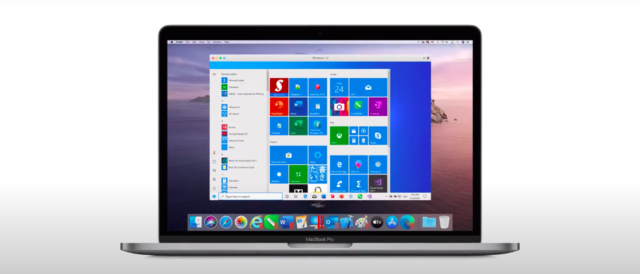Aug 30, 2018 Virtual machines work better with Parallels Tools installed. These tools add extra virtual drivers that make your virtual Mac run better, and Parallels Tools actually works with macOS Mojave as of this writing. Click Actions Install Parallels Tools in the menu bar of your host machine, and the installer will launch inside your virtual machine.
Parallels Desktop provides virtualization software for Macbooks. It is a convenient way to run Windows or any other operating system right on your Mac environment.
If you no longer require Parallels Desktop, this guide will provide you with step by step instructions on how to remove it safely and delete all of its elements.

Step 1: Removing Parallels Desktop Application
- Parallels Desktop for Mac is the easiest and most powerful application to run Windows on Mac without rebooting. Get up and running in minutes. Easily bring all of your files, applications, browser bookmarks, and more from your PC to your Mac. Switch between Mac and Windows applications, launch Windows applications from the Mac Dock, and use Mac.
- ”Parallels Desktop is the easiest, fastest, and most tightly integrated app for running Windows apps or the Windows desktop in Apple OS X.”Edward Mendelson, PCMag.com “The latest version of Parallels, the popular Windows virtualization tool for Mac OS X, almost feels like its trolling Apple.”Engadget.
- Parallels says running a Windows 10 ARM Insider Preview virtual machine natively on an M1 Mac results in up to 30 percent better performance compared to a 2019 model 15-inch MacBook Pro with an.
- Answer: With macOS Big Sur and the new Mac computers with Apple M1 chip becoming available, we will continue to do more extensive evaluations, both in our lab and with your help via the Parallels Technical Preview Program.

Navigate to the Parallels Control Center to view the virtual machines that you are running.
If you have any running machines, It is essential that you stop them completely.
To do that, click on any running machine. Navigate to the Actions tool on the top toolbar and click on Shut Down.
Once all machines are shut down, it is safe to start uninstalling Parallels desktop.
Navigate to Parallels Desktop from the toolbar and click on “Quit Parallels Desktop”
Once you quit the application, navigate to the Applications folder.
Right-click on Parallels Desktop and select “Move to Trash”
If a dialog box appears prompting you to enter the password, please do so.
Go to Trash, right-click on the Parallels Desktop icon and select Delete Immediately.

Step 2: Remove Parallels Desktop virtual machines
Now the application is completely removed from the system.
Unfortunately removing the Parallels Desktop application does not remove the virtual machines that you had installed on it. Unless you delete the virtual machines manually they will keep taking up a significant part of your storage.
Parallels virtual machines are created with the .pvm extension. Therefore follow the steps below if you would like to search for the files with the .pvm extension,
Hit command + space together to bring up Spotlight Search.
Type .pvm on the search bar.
All your .pvm files will be listed here.
Now that you know what .pvm files are remaining in your system, let’s go ahead and open Finder to find these items.
Right-click on the .pvm file and select Move to Trash
Go to Trash
Right-click on the .pvm file and click on Delete Immediately.
Repeat the process for all the .pvm files that you have on your Mac. This process will delete all the virtual machines and will save a significant amount of storage in your Macbook.
Step 3: Removing application icons and virtual machines’ folders
Removing the application and deleting the virtual machines will not completely uninstall all the elements left behind by the Parallels Desktop application.
Let’s look at what other files and folders that we should delete to ensure complete uninstallation of the application.
Let’s switch to the Terminal to get rid of all these.
Open Spotlight Search by pressing command and space together.
Search for Terminal and click on it.
Navigate to the User folder by typing the following command.
Here you will find the “Applications (Parallels)” folder. This directory should be deleted to completely remove the applications of the virtual machine.
To remove this folder, type the following command on the terminal.
Navigate to the Applications folder by typing the following command
Here you will find another application under the name “Windows 10 Applications.app” To remove this folder, type the following command on the terminal
Now that we removed these two files, let’s navigate to the Library folder to remove another file.
For this, you would require administrator access. To gain administrator access type the following command:
Enter the password for your administrator account.

Parallels Mac On Mac Free
Navigate to the Library folder by typing the following link in the command:
Parallels Mac Virtual Machine
Type the following command to remove the Parallels folder in the Library:
Type exit on the command line to exit from your administrator account.
Parallels For Mac Free
By following these steps, we have been able to completely remove Parallels and its folders from the device.
Is Parallels Free For Mac
Please keep in mind that depending on the virtual machine that you have installed, the names of the folders specific to the operating system could vary.
